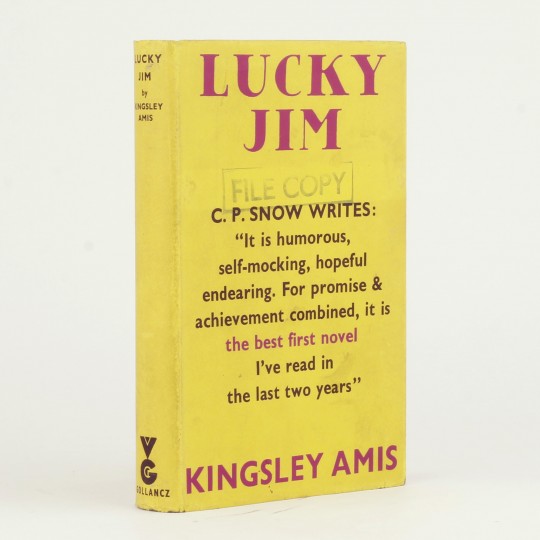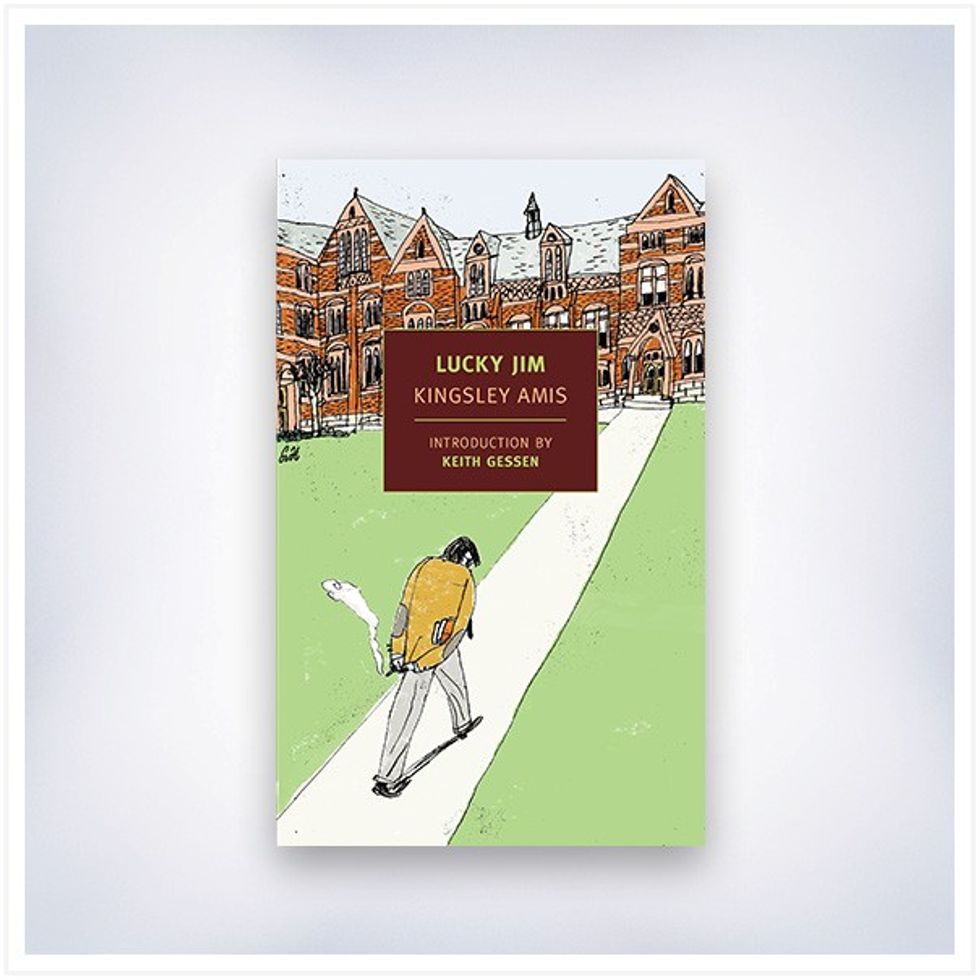
Not ketchup, not Worcestershire, not salsa, no qualifier at all.

There’s a breakfast scene where a hung-over Dixon must witness a young woman eating eggs with “sauce.” Just - sauce.

Dixon is in fact what the Thirkell characters are all most frightened of: the educated middle class, baying for their jobs and privileges.Ĭompletely unrelated but striking: austerity England. Dixon himself is the product of a local grammar school, teaching at a provincial “redbrick” university, with only the slightest chance of breaking into the Thirkell world. Amis is perhaps the anti-Thirkell, with sympathies firmly lodged in the new Labour England. What struck me most, actually, is that Lucky Jim is the reverse of Jutland Cottage or any of Angela Thirkell’ s work. Some of the best moments involve cars, which I suppose were sufficiently rare in early-1950s England to be worth noticing. There is also a lot of pure farce, climaxing in Dixon’s drunken lecture on “Merrie England,” which made me wish I could see the book filmed with, perhaps, a young Jim Broadbent in the title role. Here is the hotel ballroom where a dance is being held: on the wall “some lack of perspective or similar commodity made a phalanx of dwarf infantrymen (Spartan? Macedonian? Roman?) seem to be falling from the skies upon their much larger barbarian adversaries (Persian? Iranian? Carthaginian?) who, unaware of this danger overhead, gazed threateningly into the empty middle distance.” He has that English delight in word-play for its own sake. In a way this kind of humor is like the British version of The Office: it’s funny, but it’s also mortifying.įortunately for me some of the humor also resides in Amis’s style. And much of what happens to Dixon is cringe-worthy.

But, you know, if you lodge the narrative in someone’s consciousness, I’m going to sympathize. By any measure James Dixon and the rest of the characters in this novel - his nemesis Professor Welch, the neurotic Margaret, various sad-sack residents of his boarding-house - are comic figures. Part of the problem, though, was that I’m both too literal-minded and too tender-hearted for humor like Amis’s. I tried to read it a number of times as a precocious child and then as a teenager - it was clearly marketed as humor but, like their collections of cartoons from Punch (such a WASP affectation!), the laughs went right over my head. This is one of those books that was on my parents’ book shelf.


 0 kommentar(er)
0 kommentar(er)
